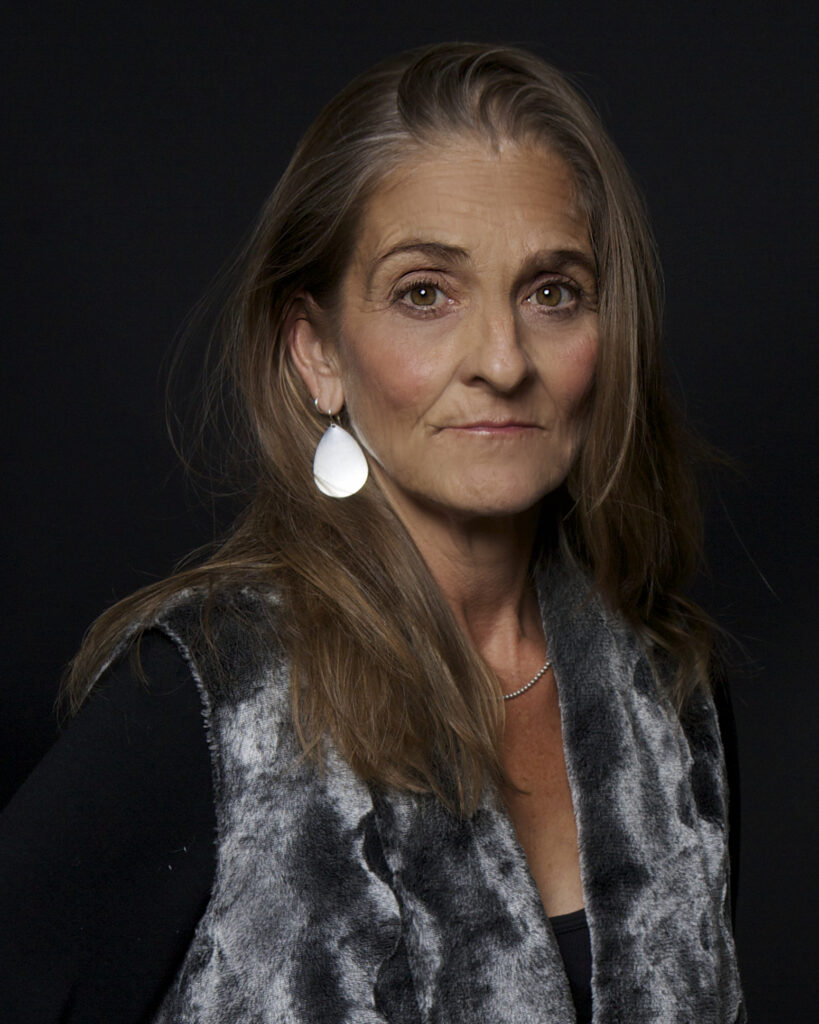Autumn Burris

What does Survivor Leadership mean to you?
Survivor leadership to me means that an individual has overcome adversities and managed thrive in life despite negative, harmful and/or violent experiences in systems of prostitution, sexual exploitation and/or sex trafficking. Exited survivors may desire to take a path of paying it forward in a variety of ways and be in the position of being a leader and/or a subject matter expert in the area of ending exploitation for others. An essential element of survivor leadership is to guide and support others to become leaders themselves if that is their goal.
How long have you been in the movement against human trafficking?
After graduating the Standing Against Global Exploitation (SAGE) program in San Francisco, California, I began working in the movement for SAGE. That was 24 years ago.
What are you greatest accomplishments in the movement against human trafficking?
My greatest accomplishment is having the opportunity to exit and work alongside survivors in a variety of ways: informal mentorship, survivor and multi-disciplinary teams, coalitions and spaces. Simply just holding the space and being present for survivors has been a tremendous honor.
Another accomplishment was graduating from the University of California/San Diego with a degree in political science with an emphasis on public policy and a minor in human rights. My intention was to work and be taken seriously in the policy space. During that time, I did my internship via a non-profit working with a Prostitution/Human Trafficking Task Force. All while, single-parenting my son.
After graduation, in 2012, I participated on the first survivor panel at the UN Women Stakeholders Forum in preparation of the Commission of the Status of Women (CSW-62). Upon returning, in March 2013, I founded Survivors for Solutions (S4S).
During my work, I have informed all levels of government from international to local. I am an expert witness in federal court cases. Training has been a big part of my work at a variety of venues. My passion lies in my international work at the United Nations, the British Parliament and in Madrid, Spain.
What is one thing that carried you through the years as you transitioned from victim to survivor to now leader?
The most imperative thing that I carry with me regardless of the type of work I am performing is that keeping the currently exploited individual in front of my heart and mind is my focus. As a survivor, business owner, policy expert and trainer, I make each and every decision on how the persons yet to exit could be affected and potential unintended consequences for the population.
What are some challenges you have faced in the fight against Human Trafficking as a Survivor Leader?
Starting my work in the Bay Area, the individuals that want to legalize all aspects of prostitution, including pimping and sex buying, have disregarded the violence, harms and death that occurs in systems of prostitution. I believe wholeheartedly in exploited persons being offered exit programming and not penalized; however, the perpetrators of the crime must be held accountable. In short, Swedish/Nordic/Equality/partial decriminalization is the way to end sexual exploitation/sex trafficking.
Another challenge has been prioritizing collaboration over competition as the survivor leader movement has grown exponentially in the last two decades. In short, the realization that it took decades to get a seat at the table and it does not always have to be me. In other words, acknowledging the growth of the movement and survivors. I perceive that as a good thing.
What advice do you have for younger Survivor Leaders who are just beginning their journeys?
To those beginning their survivor leadership journey, I would say it is okay to take your time and heal and be patient with yourself in your journey. My hope is that you realize you are more than a story and that you add value beyond being a survivor. A survivor leader and other mentors are essential to well-being and your success. There are many modalities of healing, I advise trying them all until one or a few resonate with you. For me, it has been EMDR therapy, art therapy, nature and a few more. I wish you well on your path!
What advice do you have for the anti-trafficking movement as it relates to Survivor Leadership?
In terms of survivor leadership in the anti-exploitation movement, it is fantastic that survivors are contributing to this work. I urge you to understand, we are more than a story-many of have or will get higher education, inform governments and agencies become lawyers/authors and much more. An element of allyship is that you respect us as individuals and professionals with subject matter expertise and compensate accordingly. We have come a long way and there is much more work to be done in fostering survivor leadership and ally functioning in healthy, collaborative and fair ways.
In honor of the late, Norma Hotaling, what would you say to her survivor leadership or about her fight against human trafficking?
Norma was a Trailblazer in the fight to end prostitution. She founded SAGE Project. In collaboration with the District Attorney’s office in San Francisco, she co-founded the First Offender Prostitution Program (FOPP) to penalize the purchasing of sex. Additionally, she worked on national policy-the TVPA 2000 and internationally. Her innovation and tireless motivation was impossible to deny and she paved the way for survivors to embrace their work as important, valued and respected.
She was my counselor and subsequently, my boss. Norma had a very realness, humanness and funny side to her that I am grateful I was able to witness and learn. She very much believed in my and countless survivors’ abilities beyond what we believed in ourselves. Norma used to say: “the hardest part is showing up.” That is a truth I have carried with me for decades in the work. She showed by example to celebrate accomplishments, birthdays, holidays and life. Essentially, SAGE was a community for survivors with a variety of modalities of care for staff and participants. Norma created that atmosphere and opportunity; it must be replicated.


Social Media